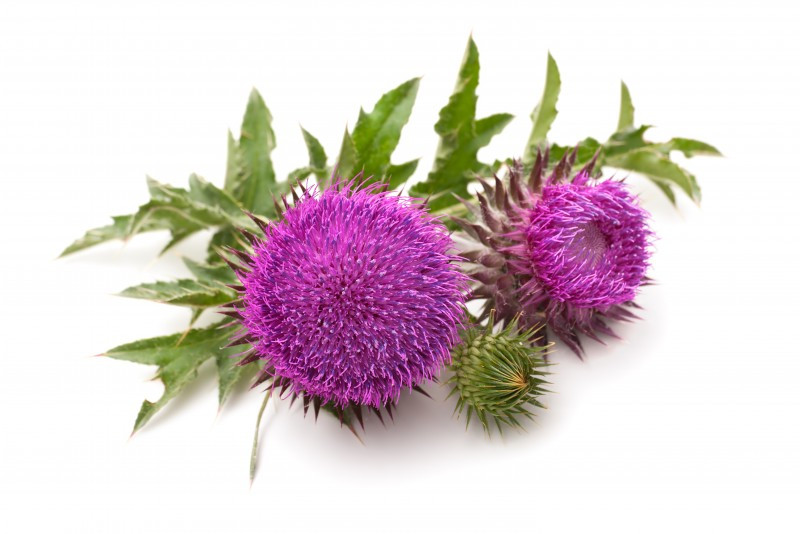For the uninitiated, milk thistle has a name that would probably conjure up images of both milk and flowers. The former is not actually a component of milk thistle, which actually is an herb with unique medicinal properties.
Background Info on Milk Thistle
Firstly, what is milk thistle? It is an herb that grows tall, and often dense in grasslands. It originated in the Mediterranean, and it has a history of use about 2,000 years old. Milk thistle is considered an invasive species, meaning that its growth has flourished to such a large extent that there is incentive to reduce its presence in some places.
Milk thistle has other names, too, such as "silymarin" and its technical name, Silybum marianum. In its long history of use, it has been transported to and cultivated over much of North America, including throughout the U.S. Milk thistle is very recognizable: many plants grow to as high as between 0.6 and 2 meters tall, and it has large, spiny purple flowers that bud between April and June.
What Are the Benefits of Milk Thistle?
There are a few different potential health benefits attributed to milk thistle. Some of these pertain to general health for aging persons, while others are linked to certain conditions or health risks. It is recommended that you talk to your healthcare provider before taking a milk thistle supplement for the first time.
Liver health:
Some experts in the field of herbal medicine have concluded that ingestion of milk thistle could help mitigate the effects of liver damage, and possibly even prevent it in the first place. There is some evidence to suggest that milk thistle could treat cirrhosis and hepatitis, which are liver conditions typically caused by alcoholism or autoimmune disease. It could also potentially help to prevent liver damage due to certain toxins.
Neurological health:
Milk thistle has multiple qualities that can potentially benefit the brain and neurological system. In fact, it has been used for its memory-enhancing qualities throughout its history. Milk thistle has both antioxidant and anti-inflammatory properties that could prevent oxidative damage to brain cells in humans. Some science suggests milk thistle could prevent the specific factor that leads to Alzheimer's disease, which is the build-up of amyloid proteins in the brain. Most of these benefits have been evidenced in animal studies, but these benefits could very well carry over to humans as well.
Diabetes:
There is medical evidence to support the use of milk thistle to suport patients with diabetes, when taken in the context of traditional treatment for the disease. Some studies have shown improvements in blood sugar levels and cholesterol in those with Type II diabetes. It could also help improve insulin resistance.
Healthy bones:
Some studies on the effects of milk thistle in animals have shown that it can promote proper bone mineralization. It can potentially even prevent bone loss. As a result, some professionals think it could be valuable to postmenopausal women, who are at an increased risk of developing osteoporosis.
Milk thistle is a unique herb with at least four different specific potential benefits. If you are compelled to take extra care of your liver, preserve your neurological health, are a type-II diabetic, or want a supplement for bone health, consider milk thistle.

